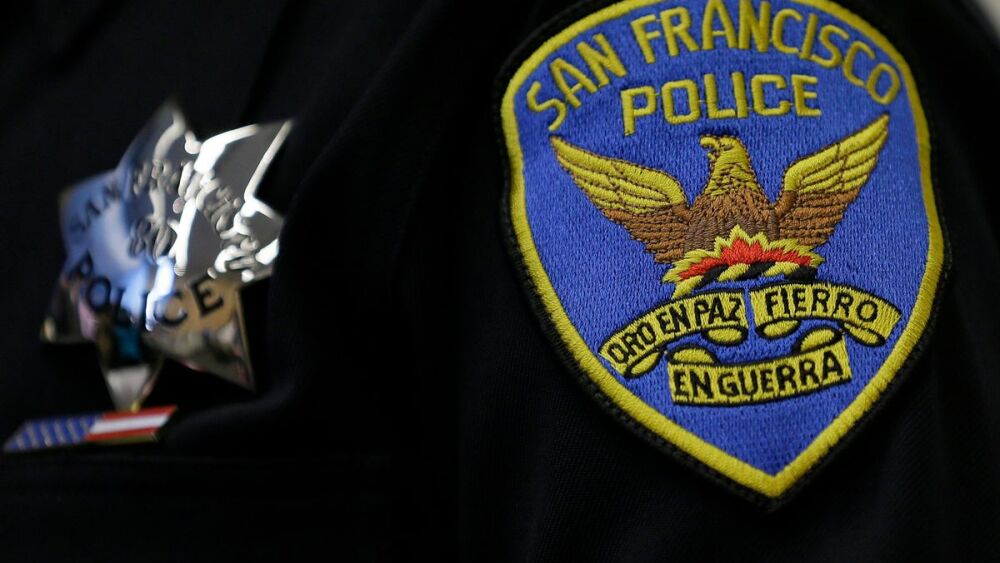By Richard Winton
Los Angeles Times
SAN FRANCISCO — San Francisco prosecutors have charged a police officer with voluntary manslaughter in a 2017 shooting of a man who died three years later while an inmate at San Quentin State Prison.
Officer Kenneth Cha became the second police officer to be charged with a homicide on active duty in the department’s history with the filing by Dist. Atty. Chesa Boudin.
In addition to the manslaughter charge, Cha faces a charge of assault with a semiautomatic firearm, along with enhancements for infliction of bodily harm, in connection with the Jan. 6, 2017, shooting. Cha was arrested Tuesday morning.
Sean Moore, who was schizophrenic and unarmed, was wounded by Cha on the doorstep of his San Francisco home after the officer and his partner responded to a call over failure to comply with a restraining order obtained by a neighbor over noise.
The 46-year-old Moore survived the shooting but died in January 2020 while serving a prison sentence at San Quentin. According to prosecutors, gunshots lacerated Moore’s “liver and struck his right colon, scarring internal organs and causing severe abdominal adhesions.” When Moore died on Jan. 20, 2020, the Marin County coroners’ report indicated the cause of death was a homicide and that he died from acute intestinal obstruction as a result of the bullet wounds.
“We rely on officers to follow their training and to deescalate situations; instead, in just eight minutes, Officer Cha elevated a nonviolent encounter to one that took Sean Moore’s life. Sean Moore was unarmed and at his own home when Officer Cha shot him twice,” Boudin declared as he announced the charges. Boudin said Cha “lacked a lawful basis to even arrest” Moore.
He added, “when officers inflict unwarranted violence in flagrant disregard of their training, it denigrates the hard work of other police officers and shatters the trust our community places in law enforcement. Rebuilding that trust requires us to hold those officers who inflict unlawful violence accountable.”
Cha encountered Moore when he responded to a report that Moore banged on a neighbor’s gate in the middle of the night in violation of a noise restraining order.
Body-worn camera footage captured the encounter between Moore and the two officers at the door of his home up a narrow staircase.
Moore denied harassing his neighbor, indicated he knew about the order, and explained that he had not been violating it as he had just been sweeping his stairs and removing his trash. He repeatedly demanded they leave, using derogatory names and swearing.
Cha and his partner came up the steps a second time and Cha pepper-sprayed Moore, inadvertently spraying his partner as well, according to prosecutors, who offer this summary of what happened next.
Moore picked up the restraining-order papers dropped by the partner as both officers retreated down the stairs. When the partner, Officer Colin Patino, demanded that Moore return the papers, Moore dropped the papers through the security gate down the stairs and returned inside.
The officers then ordered Moore outside, telling him he was under arrest, and Cha threatened to kick in the gate if he did not come outside on his own. Moore then came outside from behind the security gate and informed the officers that he needed medical attention.
Seeing Moore, Patino headed up the stairs as Moore moved down to pick up some paper. “Both officers ran up the stairs a third time with their batons raised. As Mr. Moore began retreating backwards up the steps toward his home,” according to prosecutors, “Patino hit him with his metal baton. Mr. Moore struck back, and Officer Patino fell down the stairs. Officer Cha drew his gun, pointed it at Mr. Moore and ran up the steps towards Mr. Moore, who reacted by kicking in the direction of Officer Cha.”
Cha then shot Moore twice. The shooting occurred eight minutes after the officers had arrived. Both officers have maintained their actions were legal and justified given Moore’s actions.
Moore was charged with eight counts, including assault on a peace officer, but the charges were dismissed by a San Francisco Superior Court judge for lacking probable cause, and an appellate court affirmed the court’s decision.
Later, a federal court cited the appellate decision in finding that the officers acted unlawfully when they went up Moore’s stairs the second and third times.
The courts determined that the officers had not acted lawfully when they used pepper spray and batons. Neither officer had been asked to conduct a citizen’s arrest.
Moore, however, was sentenced to prison for making criminal threats and harassing calls to a civilian police department employee.
In the wake of Moore’s death, the city of San Francisco settled a lawsuit filed by Moore’s family for $3.25 million.
In a statement from Boudin’s office, Cleo Moore, Sean Moore’s mother, said she was “very happy” that Officer Cha will be held accountable for her son’s killing and explained that she believes he was criminalized due to his mental health needs, which led to the shooting.
The San Francisco Police Officers Assn. issued a statement Tuesday about the charges against Cha.
“Officers responded to a call for service and encountered the very hostile Sean Moore who was accused of violating a restraining order. We support Officer Cha’s constitutionally protected right to present his defense against these charges that stemmed from this extremely volatile incident that an autopsy concluded took Mr. Moore’s life while he was serving time in prison on another matter,” association president Tony Montoya said.
This story originally appeared in Los Angeles Times.
©2021 Los Angeles Times. Visit latimes.com. Distributed by Tribune Content Agency, LLC.


